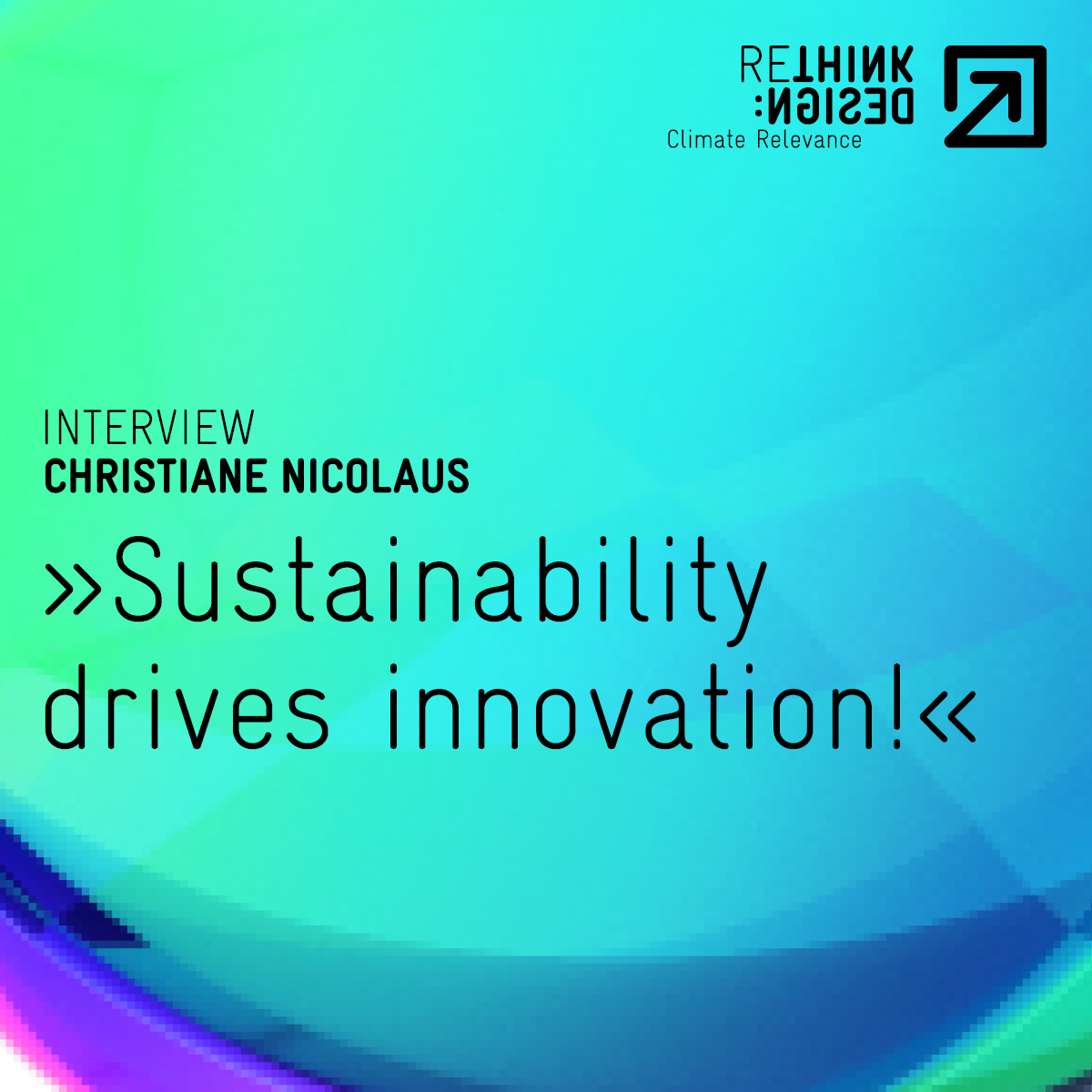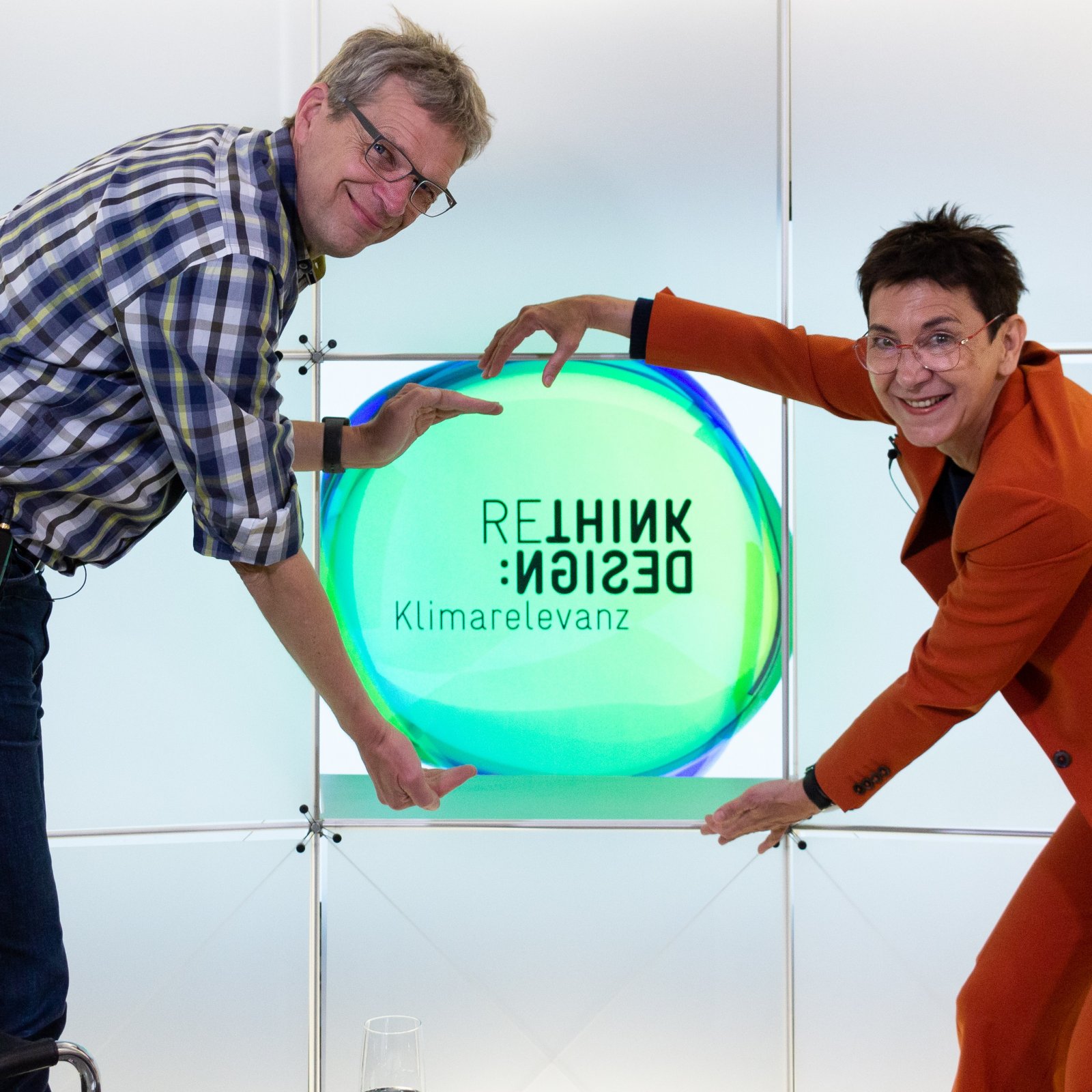
Dear Readers,
Our new RETHINK:DESIGN format continues. After his interview with design agency Ottenwälder und Ottenwälder, design journalist Armin Scharf paid us a visit at the Haus der Wirtschaft in Stuttgart – for a conversation with Christiane Nicolaus, director of the Design Center Baden-Württemberg. Find out more about the background to RETHINK:DESIGN, the influence designers have on climate-friendly products and concepts, and the new opportunities that can arise as a result.
We also want to take this opportunity to inform you about the online talk “The future starts today!” by Prof. Tina Kammer, managing director of InteriorPark., which will be live-streamed starting at 18.00 on 19 May 2022. Prof. Kammer will be exploring to what extent design and modified processes can minimise impacts on the environment and humans and give rise to a sustainable economic system. Don’t miss it!
Please note: this is an online-only event.

Design, say its critics, has fallen into disrepute, has made itself the “yes-man” of hyperconsumerism and is not living up to its ecological responsibility. In fact, design really does have a key role to play when it comes to making our lives more sustainable, more climate-compatible and more resource-friendly. Now, businesses and the design sector can turn to our new series RETHINK:DESIGN for support. The Design Center Baden-Württemberg’s new format shows how design, innovation and climate protection can interact and how commercial success and ecological responsibility go hand in hand.
What can designers contribute in terms of saving the global climate? “A lot,” says Christiane Nicolaus, director of the Design Center Baden-Württemberg. She also believes that climate-friendly design can result in a competitive advantage.
An interview about RETHINK:DESIGN and a new departure for an industry.
Why is the Design Center Baden-Württemberg launching the RETHINK:DESIGN format?
CHRISTIANE NICOLAUS: We all have to do our bit if we want to save the global climate from collapse – and that goes for design as well. Designers have a big impact on our product world – and that means a big responsibility too. To be more precise: they can have a major influence on a product’s ecological footprint, in both a positive and a negative sense. Up to 80% of a product’s environmental impact is predetermined by its design, according to Germany’s Ministry of the Environment. That’s why we launched RETHINK:DESIGN, a series featuring examples of best practice, interviews, talks and workshops that focus on design’s impact on the climate.
Our goal is to motivate people to question habitual processes and think of sustainability as an innovation driver. We want to encourage designers to be even more committed to addressing climate protection. We want to show decision-makers how to make clever use of this enhanced design expertise. And last but not least, we want to demonstrate that social and environmental responsibility are a good basis for commercial success. To do all that, we’ll be involving Baden-Württemberg-based industry, as well as research institutes and design agencies from our state who are breaking new ground. The content will be as multilayered as the topic itself.

Many companies have evidently realised just how relevant the theme of climate protection is, but haven’t actually done anything about it yet.
CHRISTIANE NICOLAUS: That’s right, there are still a lot of entrepreneurs and businesspeople who are still hesitating. Partly also because they don’t know how to tackle this enormous topic: it’s like standing at the foot of a huge mountain and knowing you have to climb it. Integrating sustainability systematically means questioning and changing processes, complying with requirements, end-to-end documentation, e.g. in the form of sustainability reports, and much, much more besides. At the outset, it’s impossible to know how much time and money will need to be invested, and the risks involved for the business are not entirely predictable.
That’s why it’s all the more important to find a feasible starting point and develop an agenda that seems realistic, maintainable and promising
With RETHINK:DESIGN, we point out ways to achieve that. And we point out that designers can play a central role. After all, when it’s implemented consistently, design is one of the few disciplines that is involved throughout the entire development process ...
Click here to read the full interview.
Are you also on your way to becoming climate-neutral? What prompted your decision?
Just send a mail to: design@rps.bwl.de